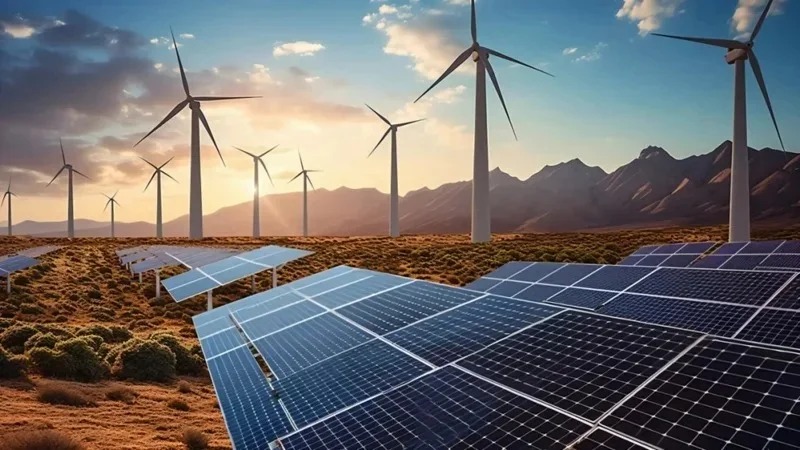Kyrgyzstan to develop green electricity market by 2030
Kyrgyzstan plans to approve the program "Development of Renewable Energy Sources in the Kyrgyz Republic for 2025–2030: Distributed and Microgeneration", Kabar reports.

The corresponding Cabinet of Ministers resolution was submitted for public discussion by the Ministry of Energy. The program aims to stimulate the widespread adoption of small-scale renewable energy facilities—solar panels, collectors, wind turbines, small hydroelectric power plants, and other types of microgeneration. These installations are intended to be installed on buildings and structures of state, municipal, and private organizations, as well as in households.
The key objectives of the program include creating favorable legal and economic conditions for the installation and operation of small-scale renewable energy facilities, developing local equipment production, ensuring access to modern technologies for the population and businesses, as well as implementing national quality standards and improving the energy efficiency of buildings.
The program also includes human resource development, outreach, gender mainstreaming, and support for vulnerable groups. Particular attention is paid to Kyrgyzstan's contribution to meeting international climate commitments and achieving carbon neutrality.
The need for the program's approval stems from the country's high dependence on fossil fuels, the low distributed generation, the lack of comprehensive incentives for installing renewable energy equipment, and the need to develop a domestic market for the production and maintenance of such installations. The document is also intended to facilitate Kyrgyzstan's fulfillment of its obligations under the Paris Agreement.
The program is designed in two stages:
Stage I (2025–2027) — creating an institutional framework, implementing pilot projects, and launching support measures;
Stage II (2028–2030) — scaling, digitalization, and integration of support mechanisms into budget planning.
Specific measures include:
- commissioning of small-scale renewable energy facilities, taking into account their efficiency;
- Improving the regulatory framework for attracting investment and developing the production of renewable energy equipment;
- stimulating demand through preferential lending, grants, subsidies, and public-private partnerships;
- developing a national certification system for equipment and specialists;
- implementing energy efficiency standards and building labeling;
- active participation of the banking sector in financing renewable energy projects.
The program was developed based on Article 9 of the Law "On Renewable Energy Sources" and in accordance with national strategic documents—the Sustainable Development Strategy 2040, the Energy Program 2035, and the updated Nationally Determined Contribution (NDC).
Notably, Tajikistan plans to become a completely green country by the year 2037.
